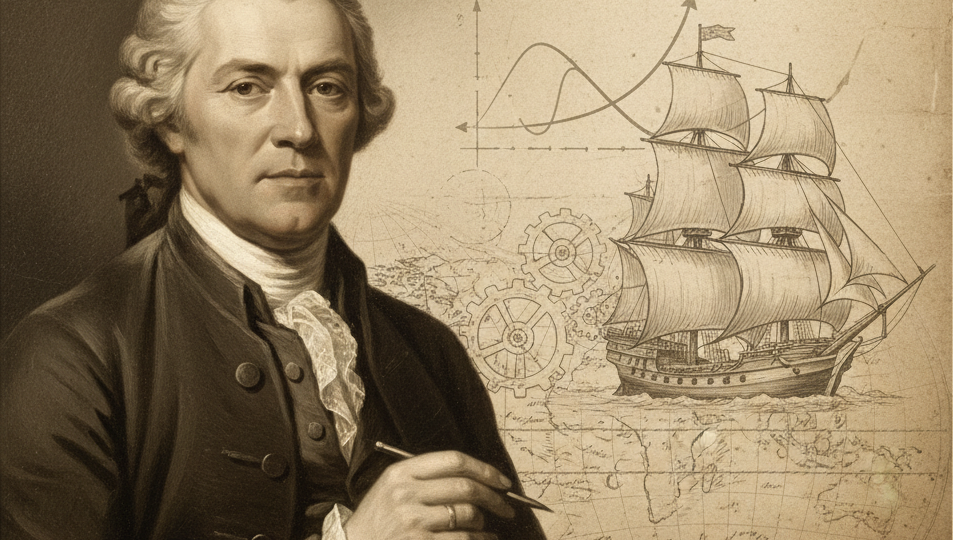
We’ve talked extensively on a lot of economists on this blog. However, economics is relatively a modern word. There are people who discussed economics even before it was ever a thing. One important name is Adam Smith. Long before the word “economist” existed, Adam Smith was simply a Scottish philosopher trying to understand what makes societies thrive. In 1776, he published The Wealth of Nations — a book that would change not just economics, but the way people thought about work, trade, and prosperity itself.
Smith argued that when individuals pursue their own interests — starting a business, trading goods, inventing new tools — they unintentionally benefit society as a whole. This idea, which he famously called the “invisible hand,” became the cornerstone of free-market economics. It suggested that markets, when left to operate freely, could organize themselves efficiently without central control.
But Smith was no cold capitalist. In his earlier work, The Theory of Moral Sentiments, he wrote about empathy, virtue, and justice — arguing that human behavior is guided not only by self-interest but by moral responsibility. This often-overlooked side of his thinking reveals a man deeply concerned with ethics, not just profit.
Smith’s insights on division of labor — like his example of pin-making, where specialized roles vastly increase productivity — predicted the industrial revolution’s efficiency boom. Yet he also warned that too much specialization could make workers “as stupid and ignorant as it is possible for a human creature to become,” recognizing early on the social costs of unchecked capitalism.
Adam Smith wasn’t trying to build an empire of markets; he was trying to understand the delicate balance between self-interest and societal good. In many ways, modern economics is still wrestling with the same question he asked nearly 250 years ago: How can personal ambition serve the common good?
RELATED POSTS
View all


